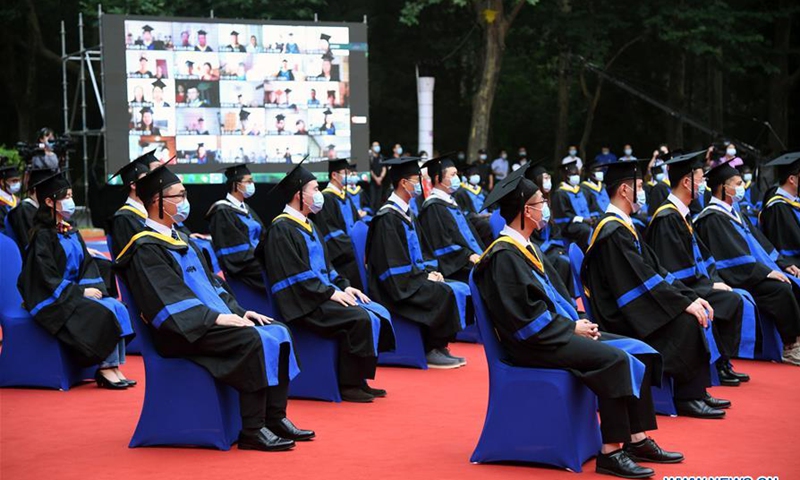China to consider judging a teacher’s ethical performance in higher academic position applications

Graduates attend the commencement ceremony at Beihang University in Beijing, capital of China, June 29, 2020. (Xinhua/Ren Chao)
China is soliciting the public's opinion on a draft regulation over the reform of professional title evaluation among college teachers, which has listed teachers' ethical performance as the top evaluation condition.
Candidates that engage in academic fraud or misconduct will receive punishment in line with the relevant regulations. If a teacher has passed the evaluation by such means, their results will be revoked, according to the regulation.
A teacher's performance and abilities should be outlined in the evaluation, the regulation said.
The rule has sparked heated discussions on China's social media platforms, with some lauding that such requirements are necessary to prevent moral and academic misconduct among teachers.
"It is very necessary as teacher's words and deeds have a very important influence on their students," one netizen commented.
"Professional ethics should be the ultimate consideration in the evaluation. If a teacher commits sexual harassment or other serious behaviors, he or she should be rejected and subject to criminal responsibility," another commented.
However, some argue that the new regulation does not specify how to evaluate ethical performance, and that an individual's ethics are actually hard to quantify; therefore, it could lead to more academic corruption.
"The question is who has the final say on the ethical performance of a teacher: the students or principal?" another user asked.
Xie Zuoxu, a professor at the Center for Teaching and Learning Development of Xiamen University, told the Global Times that most colleges and universities in China actually have detailed rules and mechanisms to judge a teacher's moral and academic behaviors; for example, teachers must clarify the opinions they cite in their papers; use financial funding in line with the requirements from funders, and treat students in a polite and fair way.
Xie believes the national regulation will serve as a warning to teachers that commit moral or academic misconduct.
"Every profession has ethics, and teachers are no exception," Xie said, adding that it is a natural, worldwide practice that teachers follow upright moral and academic rules.
The regulation also stipulates a more open and diverse criteria in professional title evaluation. For instance, it stipulates that papers, patents, undertaking academic projects, awards, and overseas study experience should not be imposed as restrictive conditions in the evaluation.
Papers published in domestic and overseas journals should be treated equally, according to the regulation. The number of papers published and list of cited papers can only be used as a reference in the evaluation. Science Citation Index (SCI) and other paper-related indicators should not be taken as a precondition or on a direct judgment basis.